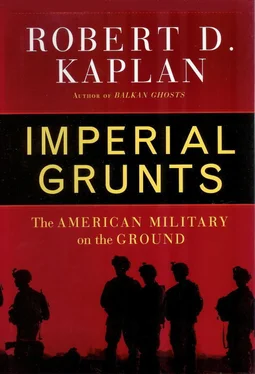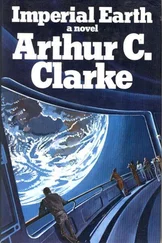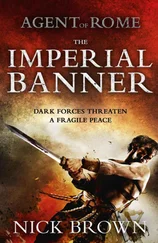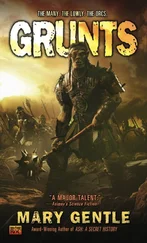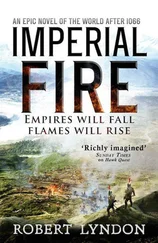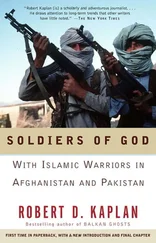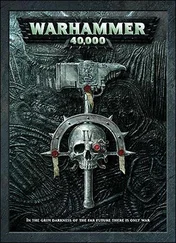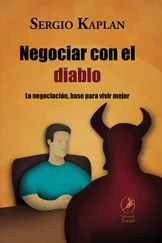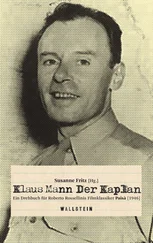For weeks I had lived with constant rocket and mortar fire. It was maddening because you had absolutely no control over your destiny, unlike in firefights where you could run, duck, dive into a ditch, or hug a wall. Rocket and mortar attacks represented the utter randomness of life compressed beyond all imagining, with devastating, unalterable consequences. At St. Mere, a Navy doc had been talking outside with his father on a cell phone when he was killed by a mortar blast. At the cloverleaf, a rocket that had traveled almost ten miles killed a man who would have gotten away unscathed had it landed even a few feet away, on the other side of a blast barrier. Should I walk to the chow hall or Porta-John in this direction or that? It might be a decision that determined whether you lived or died.
I walked from the Humvee back inside the base, found a small storeroom that smelled like cat shit—the only room unoccupied by marines—and opened my sleeping bag. Still in my flak jacket, I went to sleep for a few hours on the cement floor using my helmet as a pillow.
———
The next day, as rocket and mortar fire continued intermittently on the base, which still had no Porta-Johns and only a sporadic trickle of cold running water, we got a visit from twelve stars’ worth of Marine generals: Maj. Gen. Jim Mattis (two stars) and Lt. Gen. Jan Huly (three stars), Lt. Gen. James Conway (three stars), and Gen. Michael Hagee (four stars). Hagee was the Marine Corps commandant, one of the Joint Chiefs of Staff. He had traveled to the base from Washington with Huly, the Marines’ deputy commandant for plans, policies, and operations. Conway was the I MEF commander, and Mattis the division commander. It said something for the Marine Corps that the commandant would come all the way from Washington to what one officer termed “this shithole.” (Conditions at the soda factory later improved to the point where one journalist would describe it as “relatively luxurious.”) Cpl. Magdalin, who happened to be nearby when their armored vehicles rolled in, had his picture taken with them. “Even if I am killed tomorrow, my life is now complete,” he told me in disbelief.
The four generals, along with Col. Toolan, the RCT-1 commander, and Lt. Col. Byrne, pored over a satellite map of Al-Fallujah which they spread out on the hood of a Humvee. The plan was for 2/1 to come down from the northern part of the city and 1/5 to move in from the south and east, in order to box the insurgents against the Euphrates River, which flows north to south along the city’s western edge. The bad news was the following:
• There was no such thing as a friendly mosque in the city. Mosques were storage depots for explosives, and their ramparts and minarets were used by snipers and other gunmen.
• The American-trained Iraqi Civil Defense Corps in the area were not only deserting, but cooperating with those inside the mosques.
• It was not the high-tech stuff, but the basics that the U.S. military had neglected. The Marines were short of Arabic translators, bolt cutters for breaking into shops in their rear, and 5.56mm ammo even. (The bolt cutters would arrive the next day, and ammo soon after.)
• The plan for taking the city down was realistic militarily, but high politics in the form of cease-fires threatened to intrude.
What the Marines did have going for them was a particular warrior spirit that was less the product of American patriotism than of Marine Corps tradition joined with the traditional camaraderie of the grunts—what I had experienced with the Renegades the night after their firefight in Al-Karmah.
Democracy may have been an additional factor. Citizens of democracies eschew wars but, once they embark on a war through democratic consultation, show a propensity to fight to the bitter end. This has been true since the days of ancient Athens, and it has made democratic troops the fiercest in combat. 21Vietnam was not really an exception. By wide majorities, as attested by Harris polls, Americans supported continued heavy bombing of North Vietnam until late in the war, and President Nixon’s victory over George McGovern’s surrender strategy in 1972 was a blowout. The soldiers and marines I encountered during months of travels with the military—whose parents and grandparents had fought in Vietnam—thought of that war as every bit as sanctified as the nation’s others. As for those who saw Vietnam differently, they were generally from the more prosperous classes of American society, classes which even back then were in the process of forging a global, cosmopolitan elite. [92] See James Fallows’s 1975 essay in The Washington Monthly “What Did You Do in the Class War, Daddy?” He describes a busload of Harvard draftees at the Boston Navy Yard armed with carefully manipulated medical records to show their lack of fitness for duty, while another busload of working-class kids from Chelsea went smoothly through the induction process. See, too, Peter Beinart’s “Two Countries,” The New Republic Online, May 5, 2004. There is also Swarthmore professor James Kurth’s “The Late American Nation” ( The National Interest, Fall 2004). He explains that the global economy began producing business and cultural elites in the early twentieth century, but was stopped in its tracks by World War I, a worldwide economic depression, and World War II. By the 1960s, however, this globalization process resumed, with the rebirth of transnational identities. The sixties’ youth revolt was a partial consequence of that.
By the time of Iraq this new global citizenry was more deeply established, calling into question the age-old ability of individual democracies to persevere in a sustained and difficult war.
The grunts’ unpretentious willingness to die was also the product of their working-class origins. The working classes had always been accustomed to rough, unfair lives and turns. They had less of an articulated and narcissistic sense of self than the elites, and could subsume their egos more easily inside a prideful unit identity, of the kind that uplifted an entire platoon—the organizational layer at which the Marine Corps functioned best.
These marines, in fact, were as old as antiquity, as old as their fellow marines who had stormed Guadalcanal and Iwo Jima and Hue City; as old as their Army brethren who had stormed Omaha Beach. They were the same people. Their intent, unquestioning visages were dead ringers for those in black-and-white World War II movies. Working-class existence had functioned as the Great Preserver of the oldest, simplest virtues: unblinking courage and straightforwardness, which was both revealed and obscured by the profane language they used.
Finally, there was the unapologetic, literal belief in God absent for the most part among the elites, a faith both tempered and uplifted by the democratic experience, which endowed the grunts with stores of compassion.
To wit, a mood of depression set in at the soda factory when it was learned that a six-year-old Iraqi girl, whose family lived nearby, had been killed by a mortar intended for the American base. It was the same depression that I had observed within Bravo after the Iraqi civilian had been mistakenly shot by a marine. The number of KIAs in the battalion from the Al-Fallujah fighting had by then reached a half dozen, and the wounded had crept up into the dozens.
One of the dead was 2nd Lt. Joshua Palmer, who was shot in the neck and abdomen while leading his platoon into a house from which marines were taking fire. He had been slated for promotion to 1st lieutenant in two days, but in his typical understated manner kept the news to himself. He was recommended for the Navy Cross. To think that any humane and peaceful global order is possible without such men would be self-delusory.
Читать дальше
